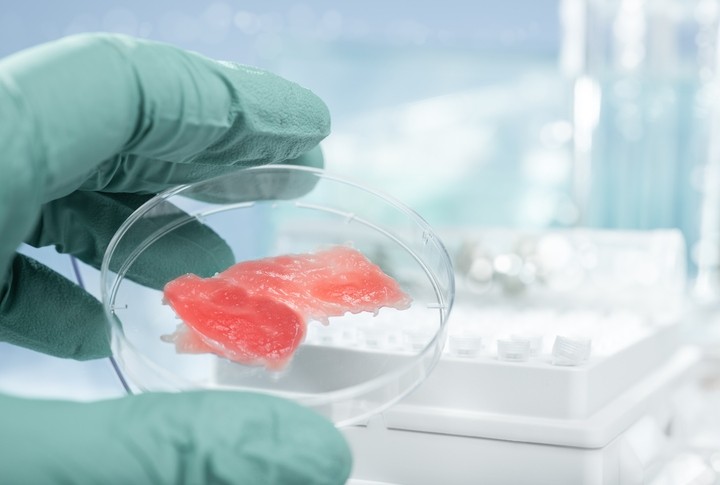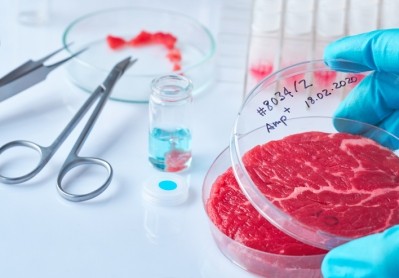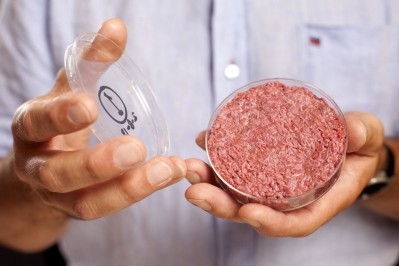Don’t have a cow man: the prospects for feed as lab meat beckons

Viggo Halseth, chief innovation officer at Dutch animal nutrition giant, Nutreco, told FeedNavigator that in the short-term future, over the next five to ten years, the company doesn’t expect to see cultured meat have any impact on animal feed consumption.
“The market share being taken by lab-grown meat will remain low over this period,” he said.
However, in the longer term Halseth predicted a change in market dynamics as a result of mass production of cultured meat. “Once there is a clear production process for lab-grown meat that meets all legislative requirements and cost targets we can expect market share to rise exponentially and this will have an impact on animal feed consumption. If and when we begin to see price parity, the situation will most likely change significantly.”
Nutreco made these comments in the context of a report entitled ‘Don’t have a cow man; the prospects for lab-based meat’, which was published at the end of August by the UK-based Adam Smith Institute. The report ventured that “animal husbandry […] now faces a viable alternative in the form of manufactured “lab-grown” meat” and argued that this will be “cleaner, healthier, cheaper, and beneficial to the planet’s environment”.
Lab-grown meat a viable alternative, but when?
Halseth said he agreed with the report’s authors that lab grown meat is a “viable alternative” to conventionally reared meat, but qualified this, saying: “the real question is when this will happen”.
“As the report shows, the legislative picture around this is very unclear at the moment. Without this clarity – and an understanding of how lab meat could be produced on mass scale – it’s impossible to say when lab-grown meat may compete with conventionally reared meat,” he said.
The report discussed several legislative barriers that are stifling the advancement of lab-produced meat. One is the question of whether cultured meat should be called “meat” at all – a debate that is playing out in the US following the filing of a petition by the US Cattlemen’s Association to the government. A second legislative barrier, according to the report, is the lengthy and costly approvals process for biotechnological innovations within the agricultural industry.
The authors have called on the UK government to “establish a new, user-friendly regulatory framework under which new businesses involved in manufactured meats can flourish and prosper”.
Another obstacle cited by Halseth is that of scaling up the technology to industrial production. At present, scientists have only managed to create a thin layer of matured cells, which can be turned into a minced meat type substance, as opposed to the 3D structure that would be needed to create the mixture of fat, muscle, sinew and cell types to produce a chicken breast or steak.
Commercialization by 2020
Nevertheless, the authors argue that “once these, and a few other obstacles have been overcome, cultured meat production could create meat that is identical to traditionally grown meat. They are backing a prediction made by Mosa Meats (a company producing cultured, meat), that the commercialization of lab-grown meat will happen by 2020; they point out the current price of a lab-produced burger is around £8 – down from £215,000 in 2013.
The main arguments for lab-produced meat center on its benefits for the environment and potential to feed growing global populations. The report also claims that“it will eliminate practices that involve the mistreatment of animals” and “…will halt the contribution made by current farming methods to the spread of antibiotic resistance”.
“We simply don’t yet know what we don’t know”
Whilst Halseth said Nutreco assumes that lab-grown meat will tackle some of the environmental issues related to rearing animals, he cautioned that “it is not yet clear if other – new – ethical or sustainability issues will be raised as part of the production of lab-grown meat”.
“Until the processes behind mass production are clear, we cannot get a clear picture of this nor can we get a clear idea of the impact on antibiotic resistance. So, in short, we simply don’t yet know what we don’t know,” he said.












